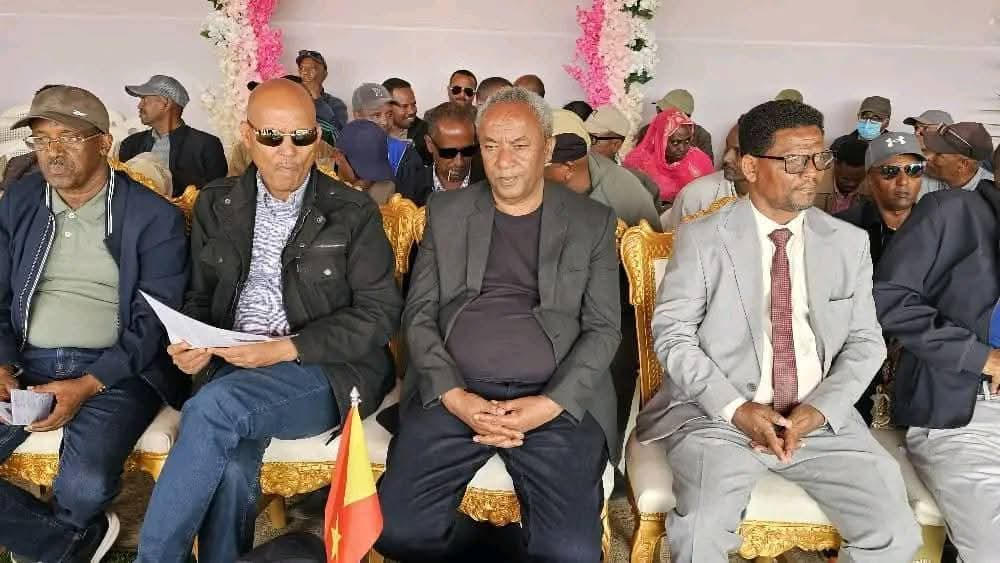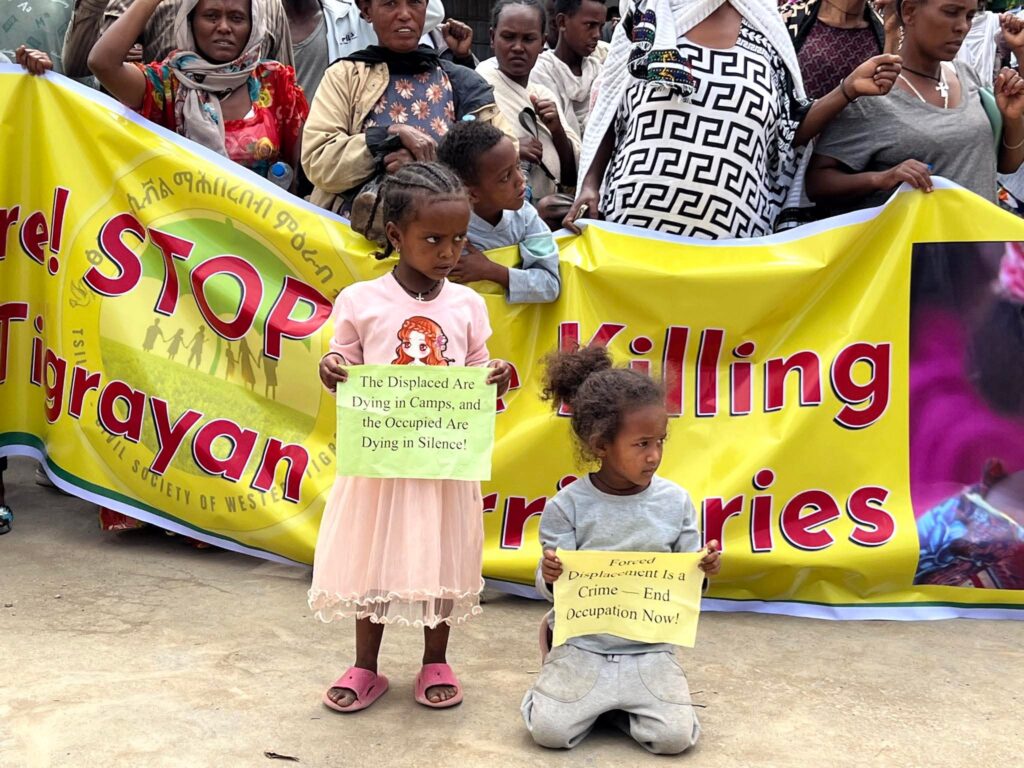Mekelle፡Telaviv, Nairobi, Pretoria, London, (Tigray Herald).
The Gamble of TPLF Leaders: Western Tigray IDPs Threaten Return March Amid Political Deadlock
Internally displaced people (IDPs) from Western Tigray issued a desperate warning on Tuesday, vowing to begin returning home by foot if formal reintegration efforts are not urgently launched. The threat delivered during a public demonstration in Mekelle comes amid mounting frustration over government inaction and prolonged displacement.
Hundreds of IDPs gathered in Mekelle city, holding banners and chanting for justice and safe return. Many have been living in makeshift shelters and overcrowded camps since they were forcibly expelled during the height of the Tigray war in 2020–2021, when Amhara forces, backed by Eritrean troops, seized control of Western Tigray.
“If we don’t see action, we’ll walk home ourselves,” one elderly protester told Tigray Herald. “We know the risks, but how long should we wait in this limbo?”
The demonstration echoed a broader slogan that has become a rallying cry for displaced Tigrayans around the world: “No More Summers in Camps.” From Mekelle to refugee communities abroad, displaced Tigrayans are staging global protests demanding the withdrawal of non-ENDF and foreign forces, the safe return of IDPs, and the full implementation of the Pretoria Agreement.
Amid the outcry, civil society organizations have stepped up pressure. In a strongly worded statement, leaders of Tsilal Civil Societies of Western Tigray issued a final warning, declaring that “if political manipulation and military occupation continue, IDPs will launch a people’s return march to reclaim their ancestral lands.” They accused both the federal government and TPLF leaders of using the displaced as bargaining chips warning that “we will not die in camps while others trade our misery for political leverage.”
Yet behind the scenes, a more complex and controversial dynamic is unfolding. According to multiple civil society and political sources, senior TPLF leaders are allegedly stalling the IDP return process until their combatant militias and political cadres are granted safe return alongside civilians. This political calculus intended to protect their organizational structure is seen by many as a dangerous gamble.
“The leadership is prioritizing the return of their own operatives over the rights of ordinary people,” said a former Tigrayan official now working with a humanitarian agency. “This is not only cynical it’s reckless.”
Despite the urgency, Tigray’s interim president, Lieutenant General Tadesse Werede, was not in Mekelle during the protests. Instead, he attended the 37th anniversary of Martyrs’ Day in the historic city of Axum. His absence drew sharp criticism from demonstrators, who saw it as emblematic of a leadership increasingly disconnected from their suffering.

“It’s deeply disappointing,” said a civil society organizer in Mekelle. “Martyrs deserve remembrance, but so do the living victims of this war. These people need justice, not just ceremonies.”
Western Tigray also known as Welkait remains under de facto Amhara control, despite the Pretoria peace agreement signed in November 2022, which called for the withdrawal of foreign forces and restoration of constitutional order. But nearly two years on, no comprehensive plan has emerged for voluntary, dignified returns.
Observers say the protest in Mekelle may mark a turning point. The threat of mass return by foot, through militarized zones could spark both a humanitarian and political crisis. Without neutral security guarantees and political will on all sides, tensions may reignite.

“The federal government must act, but Tigray’s leaders must lead,” said one human rights advocate. “People can’t live indefinitely in exile while politicians hedge their bets.”
As tensions rise, the IDPs’ message remains clear and unwavering: “We will go back even if it kills us.”
As one activist from Tsilal Civil Societies put it: “Enough is enough. We are going back.”




